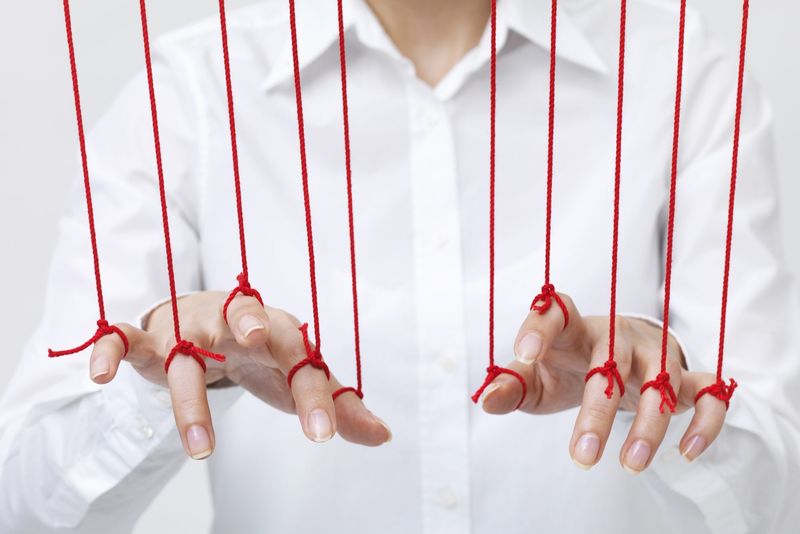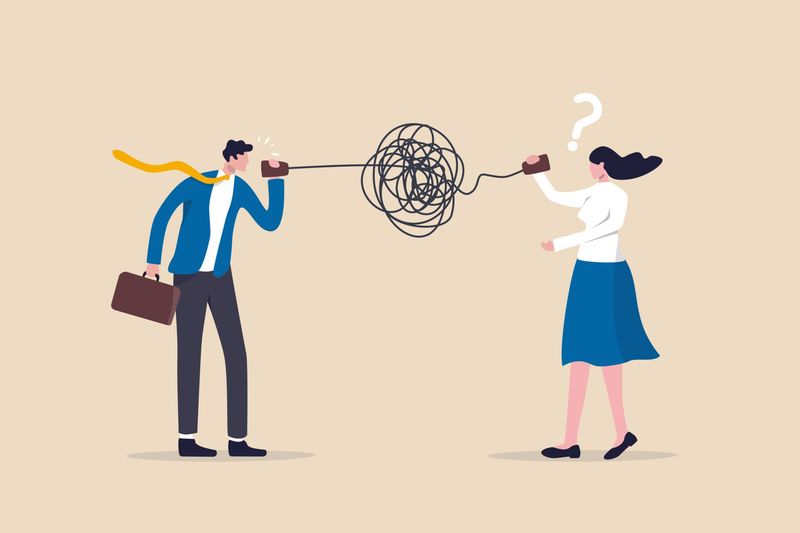15 Signs Your Partner’s Selfishness Is Destroying Your Relationship
Let’s not skirt around it—sometimes, love turns into a slow burn-out you don’t even recognize until you’re running on fumes. You wake up one morning and realize you’re tired of giving, tired of hoping, and, honestly, tired of always feeling like you’re the only one in this fight.
It’s not because you’re broken or needy. Sometimes, you’re just with someone who keeps taking, and you’re left wondering when it’s ever going to be your turn.
If you’ve ever thought, “Am I expecting too much, or is my partner just focused only on themselves?”—this is for you. I’m not here to hand you a long list of clichés or try to cheerlead you out of your hurt. I want to walk you through the tiny, sharp realities that build a wall between you and the love you hoped for.
Here are fifteen brutally honest signs your partner’s self-centeredness could be wrecking everything you’ve tried to build.
1. They Always Come First

You know that moment when something important happened to you, and you were bursting to share it? But they just changed the subject back to themselves, as if your news was background noise. That sting—that’s your cue.
I’ve lost count of the dinners I ate cold because he “just had to finish something.” Sure, emergencies happen. But when it’s every day, you start feeling like the afterthought in your own relationship.
It’s not about one missed date night. It’s the consistent pattern: you’re making space for them, but they never make space for you. Eventually, you stop speaking up. You fold inward. And that’s what self-absorption does—it makes the other person feel diminished.
2. Empathy? What’s That?

It’s a weird kind of loneliness, isn’t it? You’re finally raw enough to open up, maybe about your crappy day or your anxiety, and they meet you with a shrug—or worse, a lecture about how you should just ‘move on.’
You start editing your feelings. Why risk vulnerability when it’s met with a blank stare? You learn not to cry in front of them. You become your own emotional refuge.
There’s nothing wrong with wanting your partner to give a damn. Let’s be clear: if empathy is absent, you’re basically flying solo. And you deserve more than that.
3. The Blame Game Champion

Ever notice how, in every fight, you somehow turn into the villain—even when you know you tried your best? That’s not just bad luck. It’s a pattern.
He leaves dirty dishes? Somehow, it’s your fault for “nagging.” You’re upset about a broken promise? Apparently, you’re “too emotional.” It never ends.
You start second-guessing your reality. Gaslighting, anyone? When someone refuses to own their behavior, it’s not just about winning arguments—it’s about preserving their ego at your expense.
4. Present but Disconnected

You can sit right next to them and still feel a thousand miles away. You share something that matters—and it’s met with a blank stare, a brush-off, or worse, a counterpoint about their own life. You begin to feel like your voice doesn’t register. Not because you’re dramatic, but because they’re not really tuned in to begin with.
Over time, silence feels safer than opening up. Not because you don’t have anything to say—but because you’ve stopped believing it matters.
Being heard is a core human need. And when someone tunes you out long enough, you start disappearing—not physically, but emotionally.
5. Manipulation in Disguise

Ever felt guilty for being upset, even when you had every reason? That’s the magic trick of a self-serving partner: they twist the story until you’re the one apologizing for their mess.
They might shower you with gifts after hurting you, or say, “I only did it because I care.” Let’s be honest—that’s not love. It’s strategy.
After years of these mental gymnastics, you start to mistrust your instincts. That’s the real cost—losing clarity about what’s real.
6. Compromise? Not in Their Dictionary

Every relationship hits a crossroads: do we do it your way, my way, or meet in the middle? With a self-focused partner, it’s always their way—end of story.
You keep hoping for some give-and-take, but it’s always you who yields, sometimes until you snap. They dig in, never budging, even on trivial things.
You begin to lose sight of what you truly want. That’s how bitterness festers. Compromise isn’t weakness—it’s how people who value each other make things last.
7. Boundaries? What Boundaries?

Remember when you set a boundary and they brushed it off—or worse, made you feel bad for needing it? That’s not love. That’s power play.
Maybe they scroll through your phone, or show up at your job uninvited. The message is clear: your autonomy doesn’t matter.
You start surrendering pieces of your identity just to avoid friction. Boundaries aren’t optional—they’re a baseline of mutual respect.
8. Running on Empty Thanks

Ever poured your heart into something—maybe a meal, a small gesture, a thoughtful surprise—only to get a distracted “thanks” or zero reaction? That’s when you know appreciation has left the building.
It’s not about big displays; sometimes, you just want to feel acknowledged. When you’re overlooked, it stings.
Eventually, your efforts dry up too. That’s when the relationship starts to fade—not with a bang, but a slow, quiet erosion.
9. Sorry Seems to Be the Hardest Word

How many times have you heard, “I don’t see what I did wrong?” Or worse, received a dismissive “sorry you’re upset?” That’s not accountability—it’s a dodge.
A true apology means stepping up, not sidestepping. When your partner avoids that, it leaves the wounds raw—and you end up carrying all the weight.
You start to wonder if basic respect is too much to ask. But let’s get it straight: it’s not. It never was.
10. Control Freak in Disguise

Ever feel like your life isn’t your own—like someone else is always directing the show? Maybe they micromanage your schedule, your clothes, your decisions.
It starts subtle: a suggestion here, a raised eyebrow there. Before long, you’re constantly editing yourself just to keep things smooth.
Control doesn’t always scream—it whispers. But it always strangles freedom. Love allows you to breathe. Anything else is a leash.
11. MIA When It Counts

Faced a hard day and realized the one person who should be in your corner was nowhere to be found? That kind of absence hits deep.
You start feeling like you can’t lean on them—like you’re constantly self-rescuing. The person who’s supposed to show up goes silent when it matters most.
Support means showing up in the mess, not just the milestones. If you’re carrying the full emotional load, this isn’t partnership—it’s endurance.
12. Me, Myself, and My Wallet

Money speaks—and in lopsided relationships, it screams. It’s not about who picks up the tab. It’s about whether your partner shares responsibility, or just looks out for themselves.
If they’re constantly dodging fairness—splitting bills unevenly, making secret purchases, excluding you from decisions—it’s not partnership, it’s control.
Love doesn’t tally wins and losses. But selfishness? It keeps receipts. That’s not trust—it’s a transaction.
13. Personality Roulette

Some days, they’re kind; other days, you’re walking on shards. You never know which version of them is going to show up.
This isn’t about normal mood shifts. It’s about unpredictability that keeps you on edge—and keeps your nervous system in overdrive.
Healthy love is consistent. If you’re always bracing for impact, there’s no room for joy.
14. They Only Show Up When It’s Convenient

When everything’s smooth, they’re charming, attentive, maybe even generous. But when life gets messy—your pain, your crisis, your needs—they’re suddenly too busy, too tired, too something.
And yet when they want something—your attention, your support, your time—you’re expected to drop everything. There’s a pattern: they show up only when it suits them.
This isn’t a relationship. It’s a one-sided transaction.
A partner who only participates when they benefit isn’t interested in connection—they’re interested in control, convenience, or image.
15. Conditional Care

Ever noticed how affection flows when things are smooth—but the moment you need it, it vanishes? Or worse, turns into a bargaining chip?
At first, it’s subtle: a withheld hug, a cold shoulder, a kiss only when it suits them. You begin to wonder if connection is just another reward for obedience.
True intimacy isn’t earned like a paycheck. If affection is leveraged, that’s not tenderness—it’s manipulation in costume.







